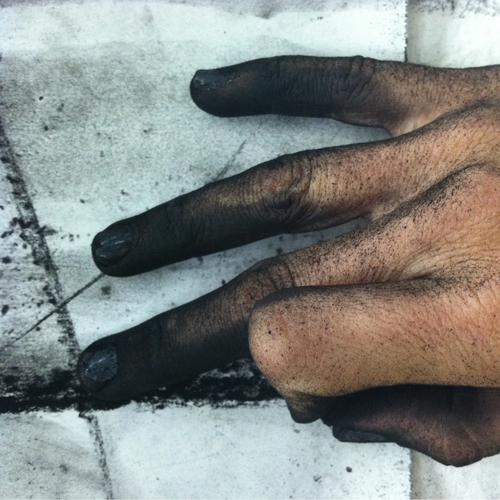The human species is inordinately deft at creating the terms of its own existence. In both long and short-term scenarios it is a rare occasion that we do not take an immediate hand on the wheel of destiny and steer it in accordance to our interpretation of the stars. In essence it is our particular point of view that ultimately defines our place in the universe and our drive towards the creation of tools continues to define our place on earth. We wait for no one, even our own kind to tell us what to do or how to do it. The forward momentum of human innovation has picked up such speed in just the last century that it is difficult to imagine any other pace but break-neck. We have in all respects reached the point of no return and the sociological bi-products e.g. literature, visual art, music, etc. are becoming more and more dense with each passing minute.

As a means of explanation, the term “point of no return” comes from aviation and literally refers to the moment during a flight between Point A and Point B that a plane can only continue towards Point B because the fuel has dipped below the capacity to turn back to Point A. Very well known individuals throughout history have experienced this phenomenon with their feet on the ground, either in an attempt to fight a land war in Asia or…well, maybe only attempting that. To choose an obscure example, Xiang Yu was a Chinese warrior that contributed greatly to the fall of the Qin Dynasty around 209 BC. A pivotal moment in Xiang Yu’s military career was the Battle of Julu in 207 BC during which he led an army across a river, sinking the very boats that could have enabled his retreat. The phrase, spoken by Xiang Yu during that moment encapsulates his resolve, “Break the kettles and sink the boats.” In essence, he formulated his own point of no return.
In the case of Xiang Yu, sinking his means for retreat inevitably contributed to his success in the short run. He won the battle of Julu and gained wealth, land and power as a result. However, his always forward, never back mentality caught up with him and he ended his own life after years of struggling to defend and maintain all that he had procured for himself. For every rush forward in prestige, power, technology and resulting monetary gain there is the fight to maintain it. One could say that the major world wars of the past century were in essence this struggle. All this innovation, all this moving from the village to the city and then. And then. We as a global civilization have made the journey past the point of no return and we must somehow formulate a feasible Point B and hold it in our minds in order to avoid the panic that comes from the knowledge that we, as a society, cannot turn back.
Now more than any other time in history, young people are becoming artists, musicians, and writers, it seems in an effort to restore balance back to the world. Whether or not it is consciously on the mind of the new painter, it is abundantly clear that the world does not need another Xiang Yu, Napoleon, Genghis Khan, “H”, Stalin, Sani Abacha or even Oppenheimer. For those of us born post WWII, anxiety is the foundation on which we have built our entire lives. We know no sense of quiet, no reference to a time when global warfare and mechanized weapons were not an ingrained part of our sense of place and purpose. No one alive today can say that they are not in some way affected, intimately, by the terms and conditions of war. We each and every one of us have family members who were permanently displaced by it, whose minds were scarred by it and whose very culture was broken and reset.

Contemporary art displays this deeply. We are scattered, individualized without a purpose and desperately seeking a voice in which to express this anxiety. Our villages are long gone, dissolved into the roots of family trees that stretch across continents and threaten to encircle the entire world in a network of thirst. The thirst quenching liquid, the so-called Nectar of the Gods is our ability to express ourselves. We need to be able to present endless points of view in a manner that can cross all divides and reverse the mentality that our boats must burn in order to further the success of our campaign as a species. Nothing connected or leading to destruction of any kind will result in success in the long run. We must support more constructive means of effecting civilization. We must create and create uniquely.
Image captions:
Above: Sarah Walsh, UNTITLED, charcoal on arches butcher paper
Bellow: Sarah Walsh, SELF PORTRAIT OF THE ARTIST’S HAND, digital photography
This article was written for RAWR magazine published November 10, 2012.

Recent Comments